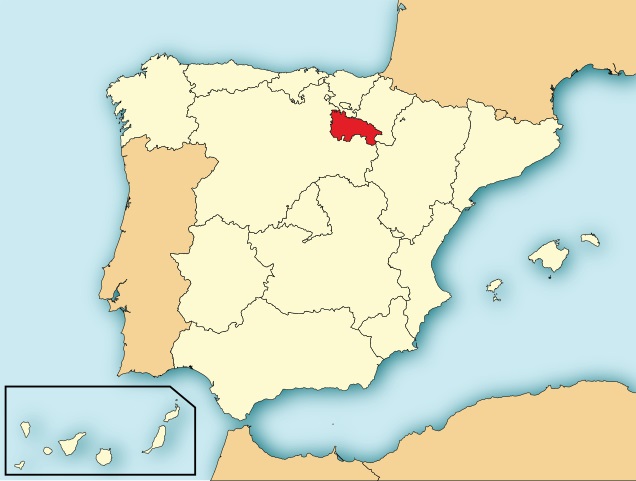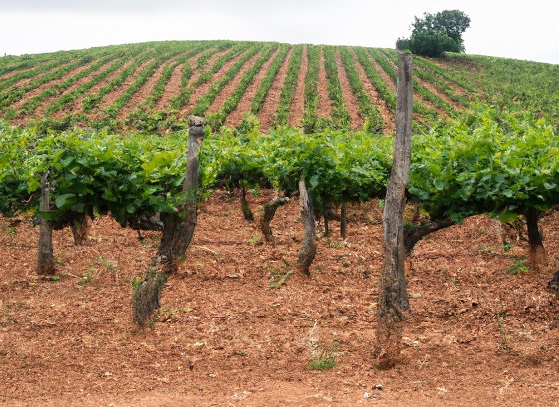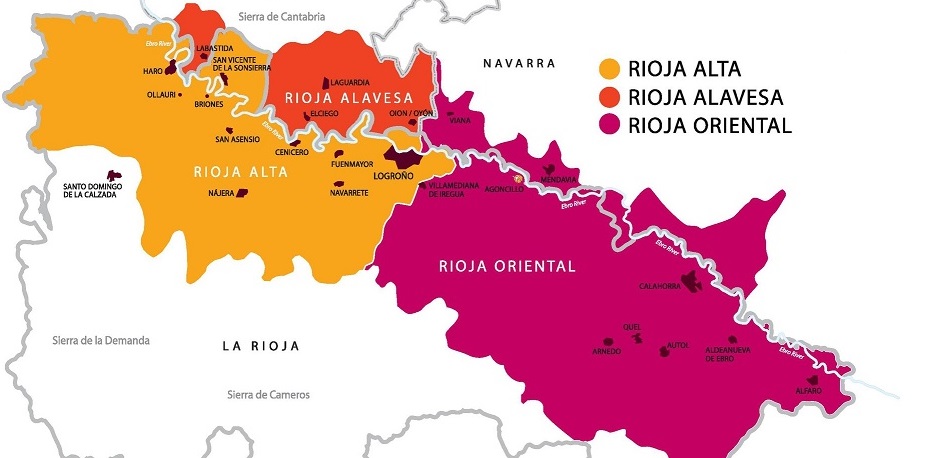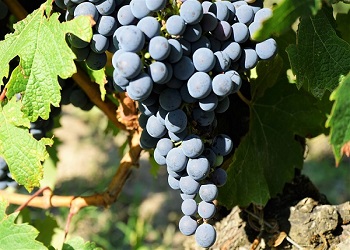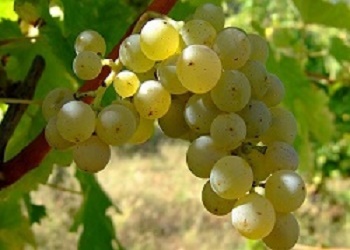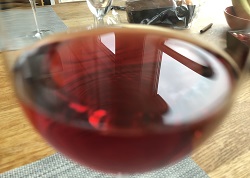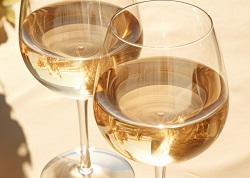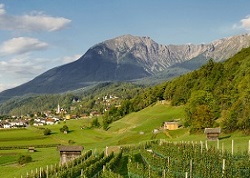Spanish Grapes
Graciano
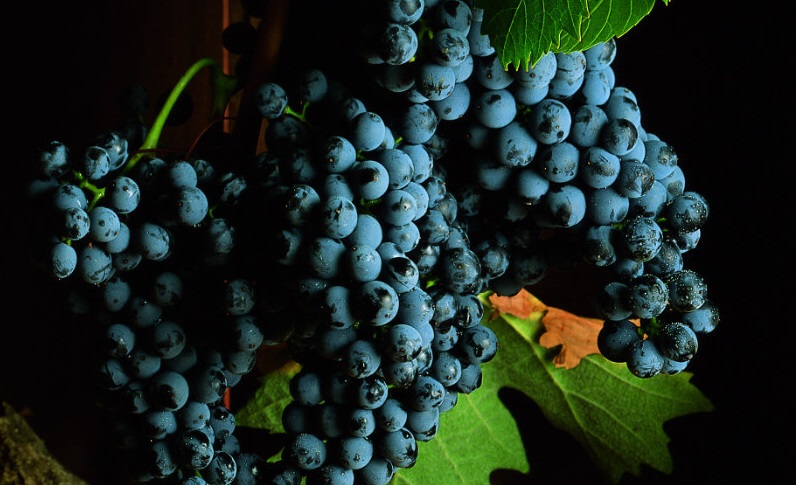
Graciano is a red wine grape that is grown primarily in the warmer areas of Rioja.
The grape produces wines with notes of high fruitiness and color
It has been used to enhance the fruity aroma of Tempranillo and giving it more acidity, and now single-varietal wines are beginning to appear.
Graciano is difficult to grow, but the grape is a key component of Gran Reservas wines from Rioja and Navarra.
The grape produces powerfully aromatic dark wines with an intense flavour.
Graciano’s spiciness, acidity and tannin make it the perfect blending partner for lighter grapes like Garnacha and Tempranillo.
Graciano Aromas
Graciano has many complex, aromatic, dark fruit flavours (Blackberry, Plum, Mulberry), floral flavours like Violet and Mint, and spice flavors like Pepper, Cinnamon and Liquorice:
Blackberry |
Plum |
Mulberry |
Violet |
Mint |
Licorice |
Pepper |
Cinnamon |
Most Graciano wines are aged in wood barrelse adding Vanilla, Toast and Leather to the flavor profile:
Oak |
Vanilla |
Toast |
Leather |
Wine Region Rioja
Rioja is a famous wine region in the north-central part of Spain. It is Spain’s largest red wine producing region with over 600 wineries and an annual production of over 400 million bottles.
The Rioja region is a denominación de origen calificada, "Qualified Designation of Origin (D.O.Ca)", the highest category in Spanish wine regulation.
Rioja wines ares made from grapes grown in La Rioja and Navarre, and the Basque province of Álava.
The key appellations are Rioja Alta, Rioja Alavesa, and Rioja Oriental (previously Rioja Baja).
Rioja Alta (Rioja High)
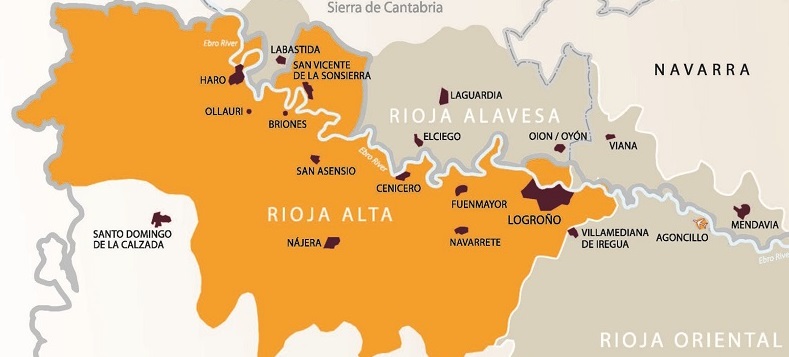
Rioja Alta is Located on the western side of Rioja. It has an Atlantic climate, and its soils consist of iron-rich clay mixed with limestone. Thanks to the elevation and cooler temperatures, Rioja Alta wines have more tannin and higher acidity than Rioja Oriental, and they are often more elegant.
Rioja Alavesa
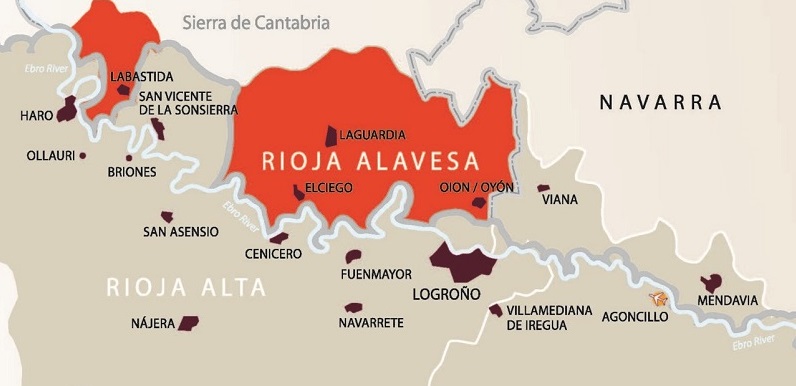
Rioja Alavesa is the smallest of the Rioja regions. It is located between the Ebro River and the rocky mass of the Sierra Cantabria. The wines bear a high resemblance to the wines of Rioja Alta with high tannins and high acidity.
The vineyards here are located at high altitudes, resulting in cooler temperatures that aid in the acquisition acid levels and good colour. The soil is rich in chalky clay, limestone and sand.
Rioja Oriental (Rioja East)
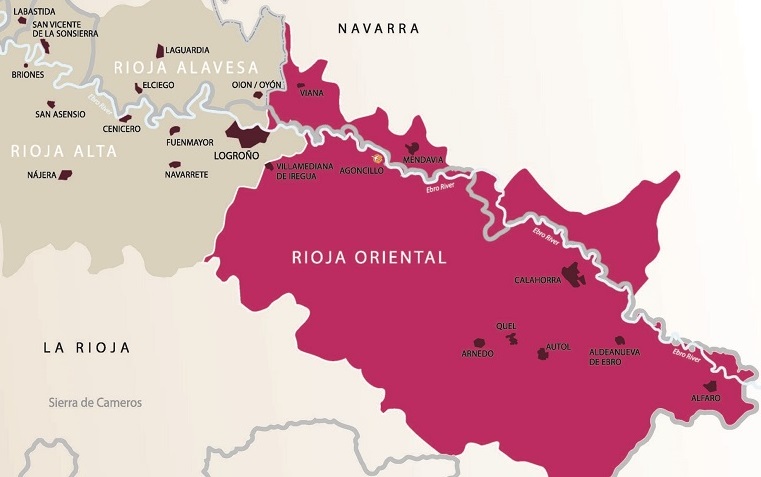
The wines from Rioja Oriental (Rioja East), formerly the Rioja Baja (Rioja Low) are fruit-forward and the wineries focus on wines designed to drink young.
Red Wines
The region is best known for high-quality Rioja Wines.
A typical Rioja blend consists of 60% Tempranillo ("the Grape of Spain") and 20% Garnacha along with other fruity additives like Mazuelo (Cariñena) and Graciano.
White Wines
Viura (Macabeo) is the dominant white grape in Rioja, accounting for 70% of white varieties.
Viura is also found in France, particularly in Roussillon and the Languedoc, where it is called Maccabeo or Maccabeu.
Nine white varieties is allowed to use in white Rioja: Viura, Malvasía Riojana, Garnacha Blanca, Chardonnay, Sauvignon Blanc, Verdejo, Maturana Blanca, Tempranillo Blanco and Torrontés.
DOCa Rioja (La Rioja)
Rioja was the first Spanish wine region to obtain DO status in 1925. In 1991, it was promoted to DOCa (Qualified Designation of Origin), a higher category reserved for wines maintaining a proven consistency and quality over a long period of time.
| Black Grapes | White Grapes |
|
88% Tempranillo |
70% Viura (Macabeo) |
| Red Wines | White Wines |
|
|
Viura (Macabeo) |
| Soil | Climate |
|
Rioja Alta: Rioja Alavesa:
Rioja Oriental (Baja): |
Hilly Riverbanks. |
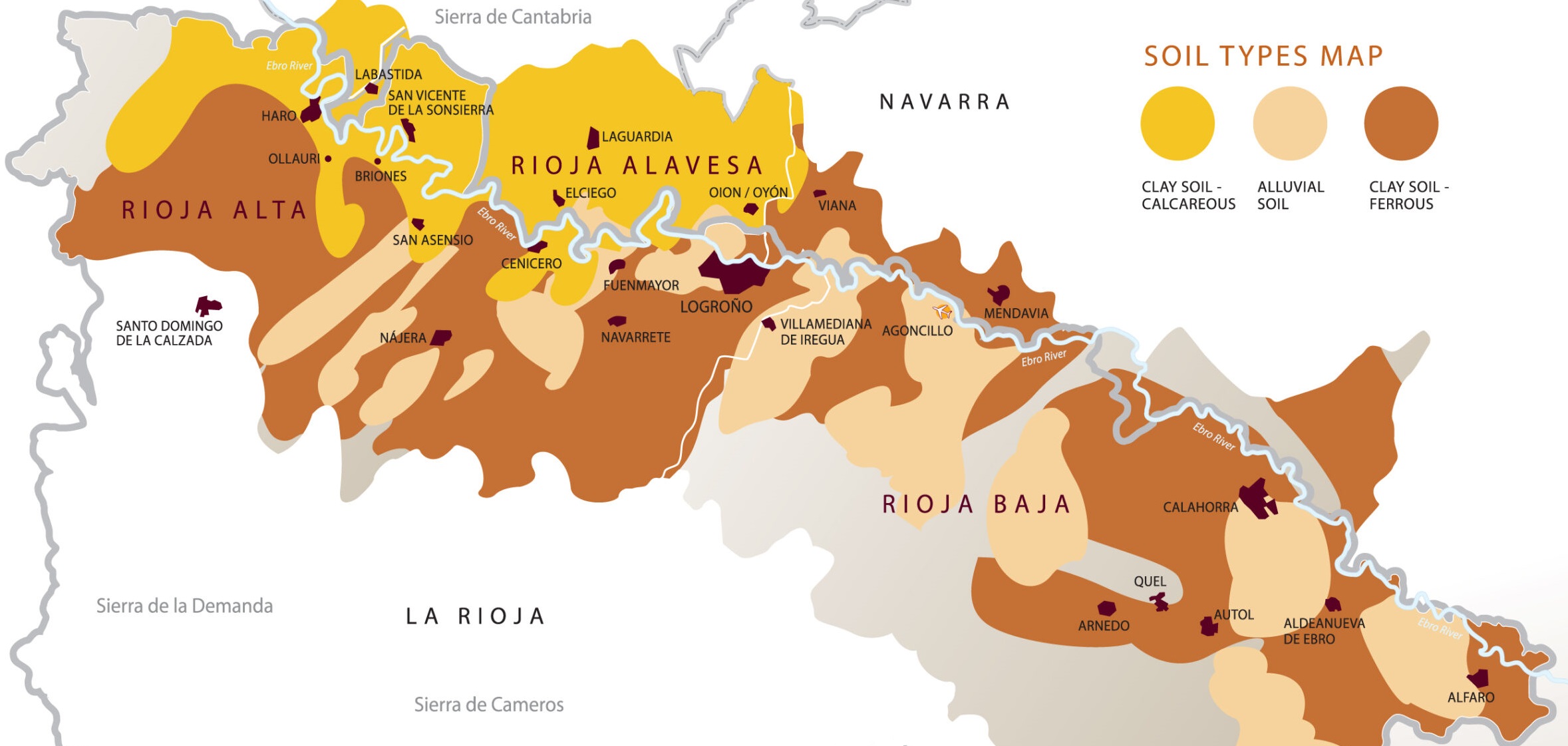
Alcohol can be addictive. Always drink in moderation.
© Copyright 2015-2025 W3 Wine School. All Rights Reserved.
